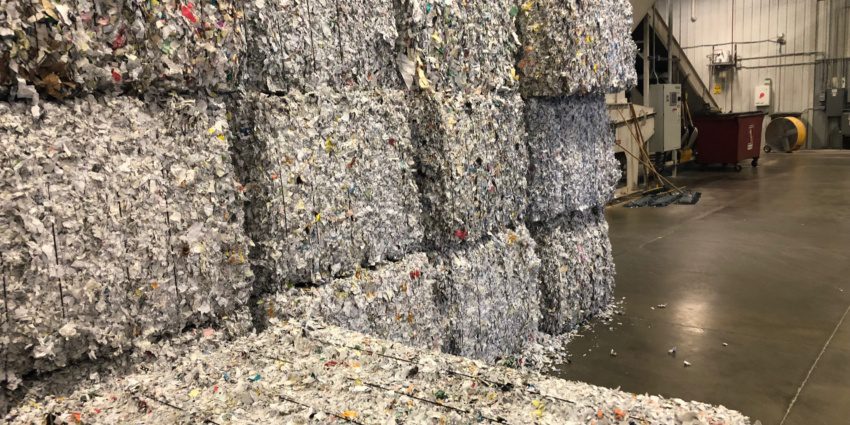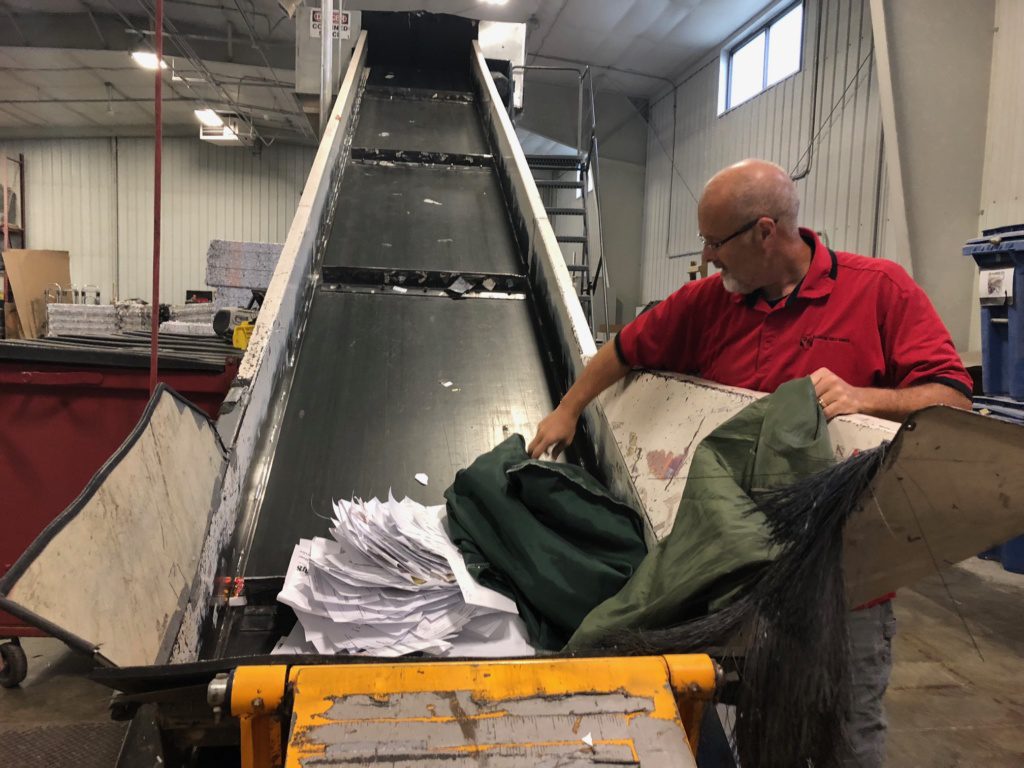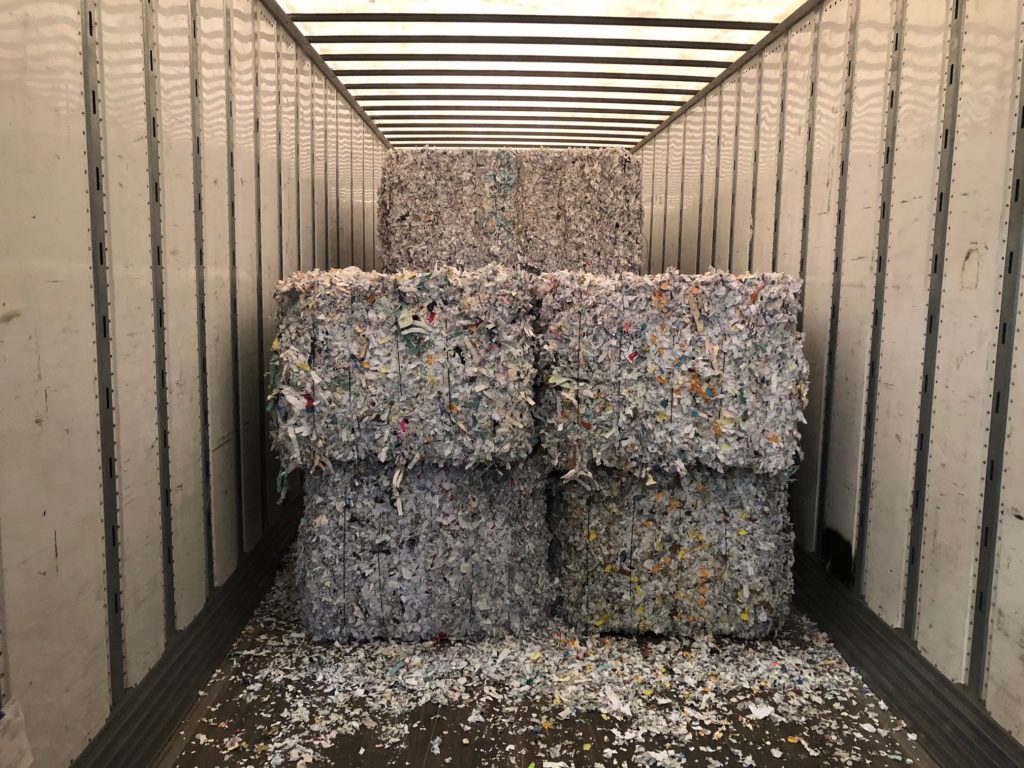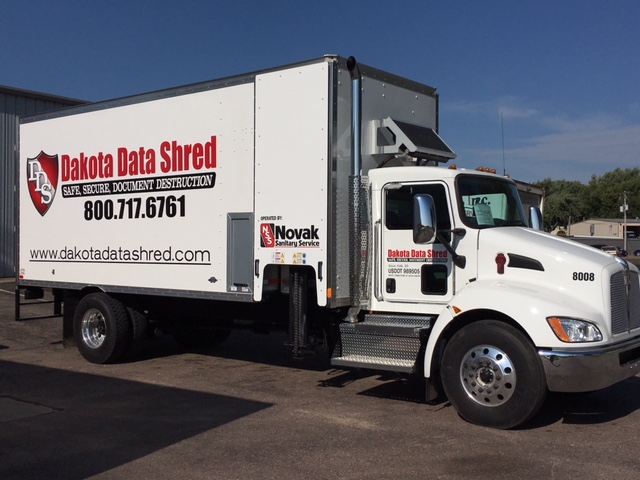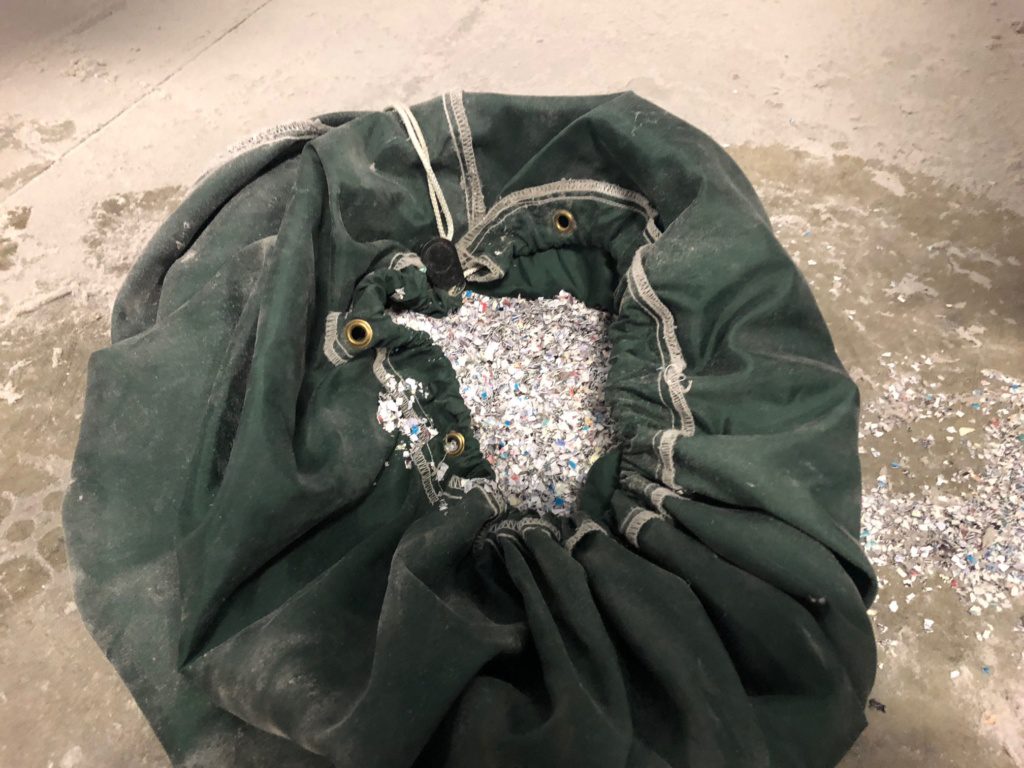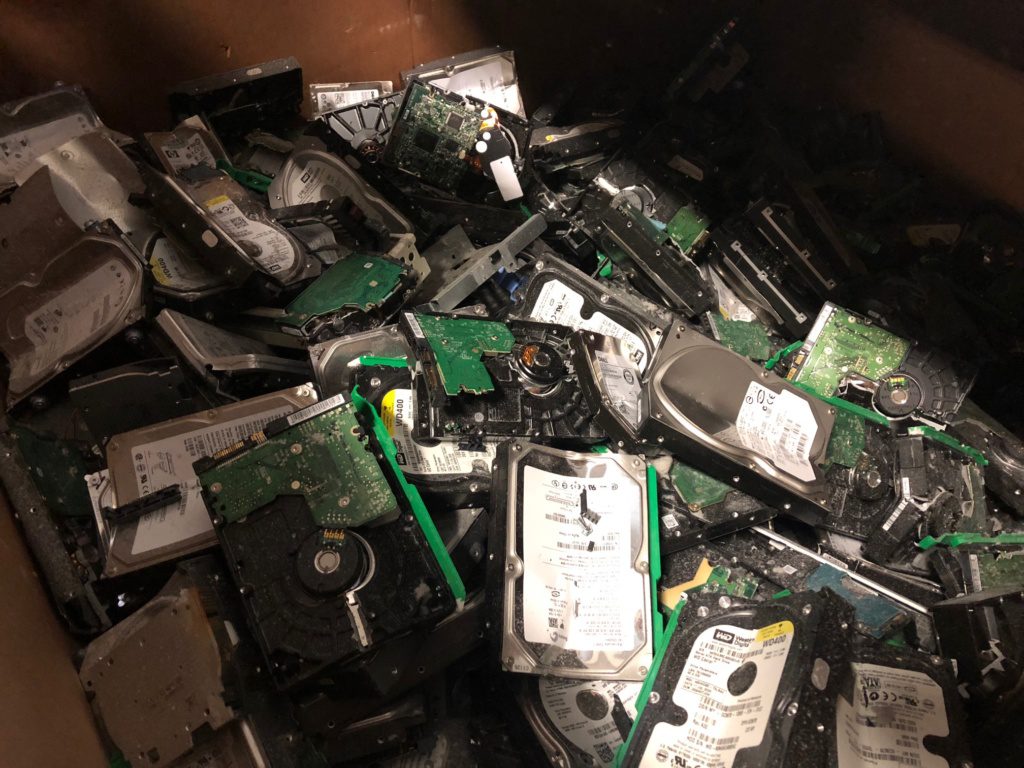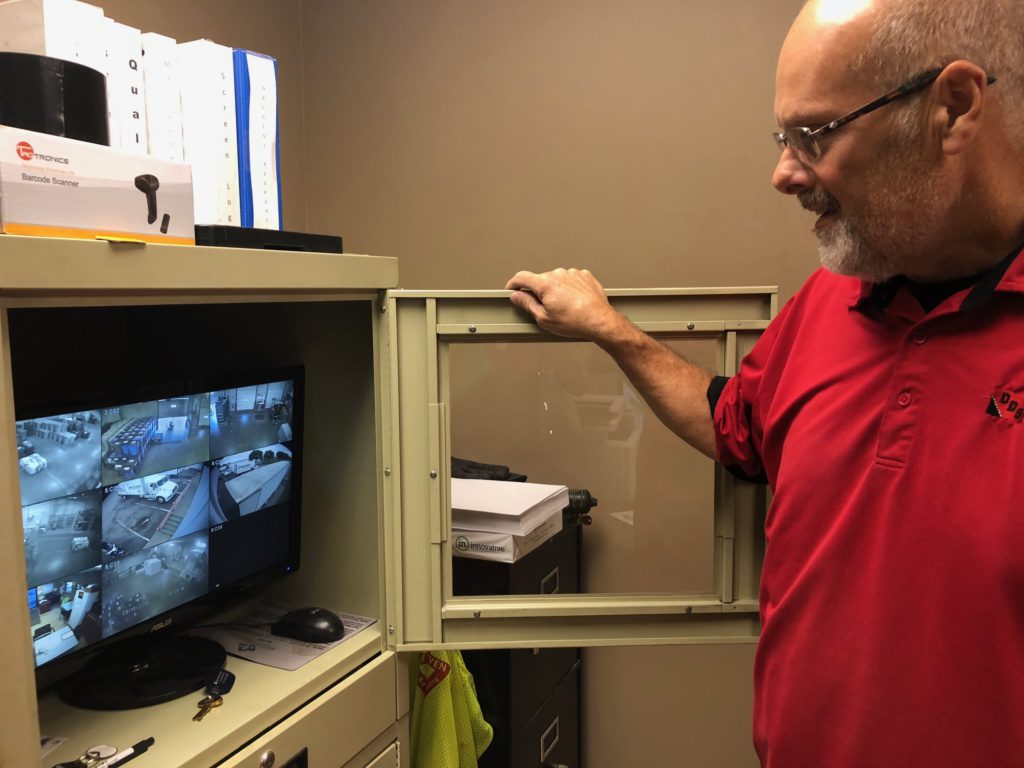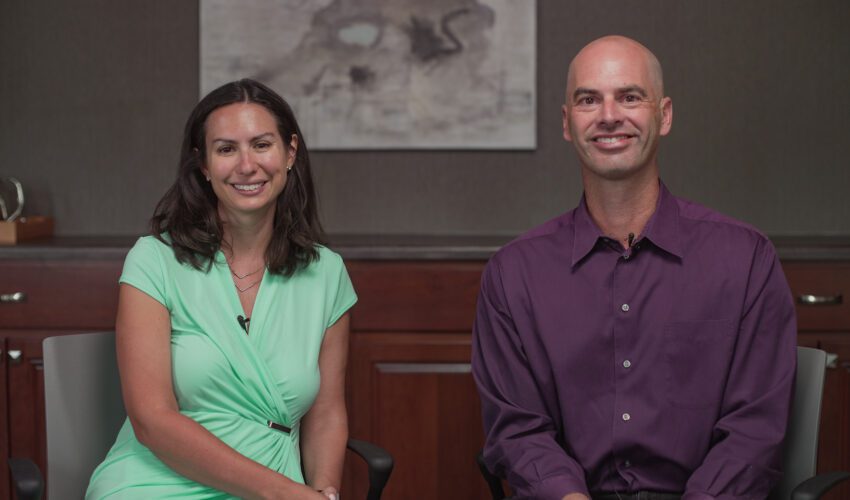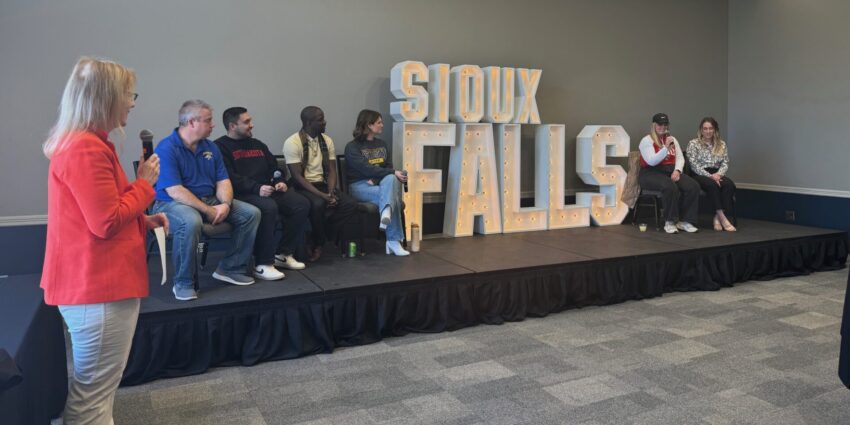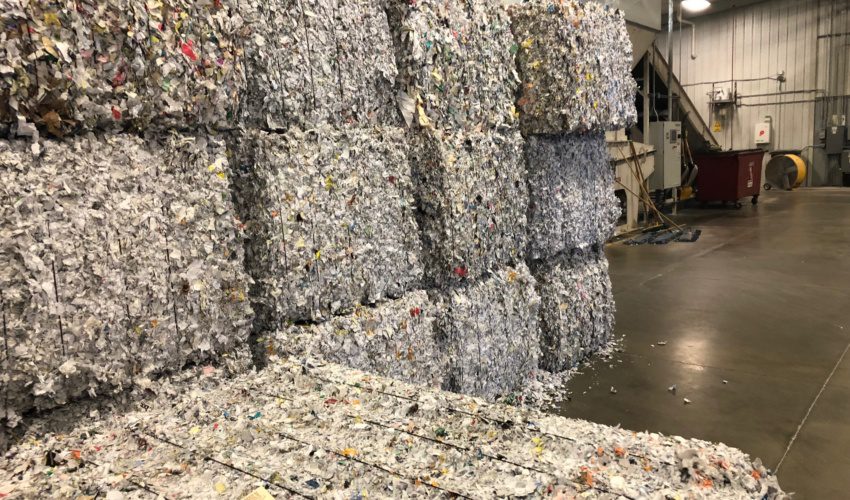From documents to hard drives, businesses should consider regular shredding
Sept. 21, 2018
This paid piece is sponsored by Novak Sanitary Service.
Don’t tell Gary Gascoigne we live in a paperless society.
The supervisor of Dakota Data Shred watched his operation shred 7 million pounds of paper last year.
Every other day, DDS bundles 45,000 pounds of paper that has been shredded, shipping it to Wisconsin where it will be turned into tissue paper.
“We have customers we do daily,” said Gascoigne, who has been at DDS for a decade. “We get eight to 12 carts a day from one large financial services customer. And then we have customers we do annually or every other year. It really varies.”
DDS is a subsidiary of Novak Sanitary Service. It’s located in a secured location on the same property as Novak at 5000 W. Eighth St., and each Novak residential customer can bring up to five boxes of information in for shredding each year. DDS also will shred for non-Novak residential customers.
Businesses keep DDS especially busy, though.
Gascoigne encourages shredding “any personal information you have on any of your clients and any financials for your business – basically anything you wouldn’t want your competitors to have — and, of course, HR-related information personal to your employees.”
For convenience, DDS dispatches its trucks to businesses to pick up materials.
“We cover all of South Dakota and part of Minnesota, Iowa and Nebraska,” Gascoigne said. “I’d say 90 to 95 percent of our business is where we pick up materials and bring it to the plant for shredding.”
And paper isn’t the only material being destroyed at DDS.
The state of South Dakota sends expired driver’s licenses there, where they’re turned into tiny pieces and recycled.
Hard drives are an especially big growth area, Gascoigne said. DDS destroyed more than 1,400 of them last year.
“We’ll remove the hard drive, destroy it and recycle the rest. If it’s a commercial computer, you’re bound to destroy it. If it’s your personal computer, it’s the right thing to do. You can do something else with it, but it can end up in another country with someone accessing your information.”
Other electronics can be destroyed too. In all, DDS can take care of:
- Paper/printed media.
- Microfiche/film.
- Computer hard drives.
- Non-paper media, such as:
- Optical media: Includes digital electronic storage devices that write or read data — CDs, DVDs, CD-ROMs and DVD-ROMs.
- Magnetic media: Includes magnetic tapes and floppy disks.
- Flash media: Includes USB storage devices, PDAs and cellphones.
“Anything that will record information electronically, we can run through the shredder,” Gascoigne added.
DDS is certified by the National Association for Information Destruction for its mobile- and plant-based operations to destroy paper, printed material, micromedia, physical hard drives and non-paper products. The NAID represents the gold standard for certification, Gascoigne said.
“They look at how we do employee background checks and how we transport, destroy and dispose of material,” Gascoigne said. “Once we take possession, anything that has information is destroyed by us. We pick it up. We destroy it.”
To learn more about DDS, call 605-373-9281 or click here.

